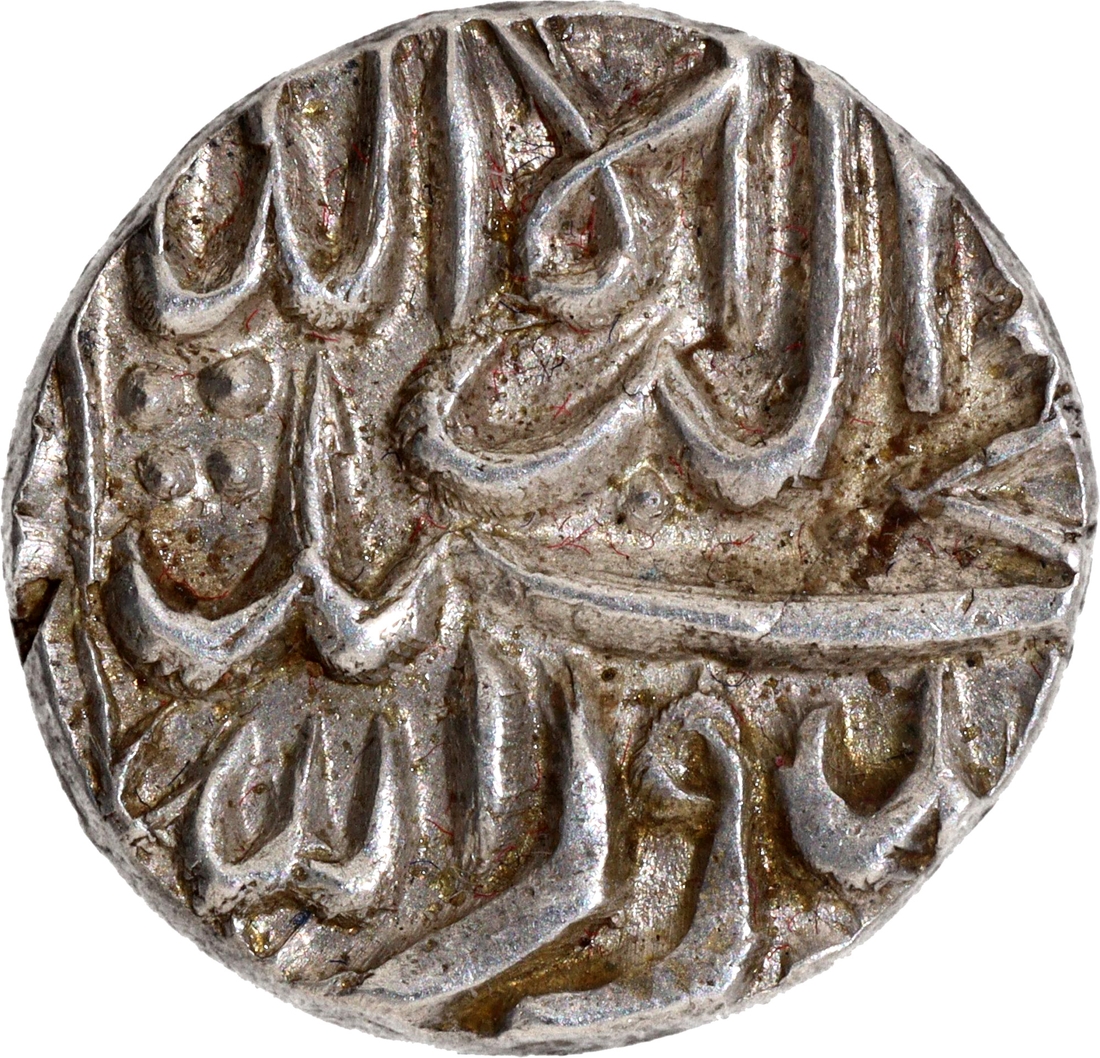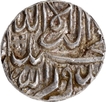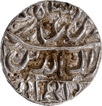This Lot is closed.
- P-Auction # 42
- Bids: 1
- Views:168
| Start Price 50000 | Estimated Price 50000-60000 |
| login, to view Hammer value | |
| Quick Description | ||||
|---|---|---|---|---|
| Denomination | Kori 01 | Metal | Silver | |
| Full Description: Dhrangadhra, Rai Singh Jhala, (the ruler of Halwad), In the name of Akbar and Murid Rai Singh, Silver Kori (Murid Kori), Struck in Gujarat peninsular, Obv: Arabic legend the Kalima Shahada, Rev: Persian legend "Jalal-ud-din Muhammad Akbar Badshah Ghazi" & Nagari legend "Murid Rai(Singhji)" at the bottom, 4.66g, 15.53mm, (Unlisted in KM), sharply struck, superb strike, AU-UNC, Extremely Rare. Note: It was believed previously that Rao Raydhanji II of Kutch was said to have issued this coin, in which he declared himself to be a 'Murid' (disciple) of a Sufi saint. The fact that it is struck in the name of Akbar makes this implausible since nearly 200 years separated Raydhanji and Akbar. It is likely that 'Rai Singh', who struck these coins, is Raisingh Jhala, the ruler of Halwad (Dhrangadhra). In 1566, during the third year of Raisingh's reign, Raisingh was fatally wounded in the battle of Malia. His infant son Chandrasingh was proclaimed king in his place. Raisingh, however, appears to have survived the battle because he is known to have had an audience with Akbar about 20 years later at Fatehpur Sikri. As soon as Raisingh secured Akbar's confidence, he returned to Halvad between January and March 1585, regaining the throne from Chandrasingh through Abdur Rahim Khan, the governor of Gujarat. The time he spent at Akbar's court would have a long term impact on his subsequent reign. When Muzaffar III rebelled, the local rulers of Kathiawad formed alliances with the warring parties. Jam Satrasal (Sataji) of Nawanagar allied himself with Amin Khan Ghori, who was the de facto ruler of Junagadh during the revolt. It is believed that they were Muzaffar III supporters. In accepting the Mughal sovereignty, Raisingh Jhala took the side of the Mughals. Raisingh Jhala's subservience is emphasized on these coins by the word "murid", which is translated as "a servant.". | ||||


